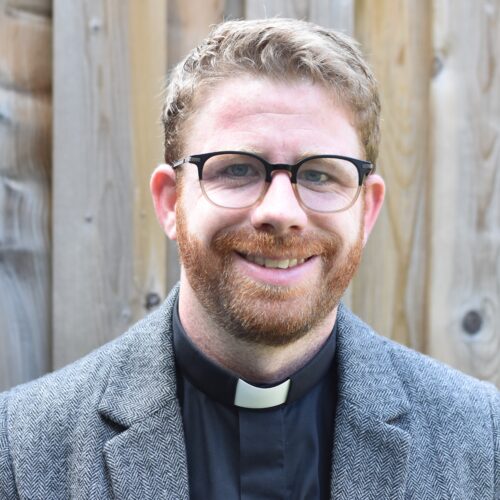Christian Foundations: Finding our Place in God’s Story
This course is an introduction to the Old and New Testaments in its literary and historical contexts. It will equip Christians to read Scripture through a missional lens and to share the story of our faith in the church and to the world.
Mondays 7:00pm – 9:00pm ET
The Bible – both Old and New Testaments – is the story of God’s relationship with God’s creation. It is both particular and universal, focusing on the Israelites as the people through whom God will accomplish God’s cosmic plan of redemption. The entire story highlights the alienation of all humankind and the corrupted state of all creation, while also emphasizing God’s loving persistence and plan to bring healing and redemption to every corner of the cosmos, including human hearts and communities. The Old Testament narrates the creation of the world and humankind, and the often-tumultuous story of Israel from the call of Abram to the Babylonian exile. The New Testament continues the story with the life, death, and resurrection of Jesus, followed by the gift of the Holy Spirit and the growth of the early church through the missionary activity of Paul and other apostles.
This class will serve as a broad introduction to the Bible and biblical interpretation. We will read and discuss Scripture together as a learning community with an eye toward communicating God’s word to the church and the wider world. I will introduce the learning community to historical-critical exegesis and missional hermeneutics as complementary methods of biblical interpretation for understanding what God is saying to us in and through words of Scripture. We will consider the literary histories, genres, context, and theologies of individual biblical books, while also situating them within the larger narrative of Scripture.
What You’ll Learn
How it works
Learn together
Participate in eight two-hour Zoom sessions with Rob and the learning community. It is expected for participants to attend every meeting and arrive on time.
Thoughtful Preparation
Read the assigned passages before each session and come prepared to share your thoughts and questions with the learning community. It is expected for participants to reflect on the course content between each session.
Engaged Participation
Instructor

| “The Rev. Dr. Robert (Rob) Jones is an Anglican priest and biblical scholar. Rob serves St. John’s Episcopal Church in Huntingdon, PA as a long-term supply priest, and he is also the assistant director of Jewish Studies and an assistant research professor of Jewish Studies and Classics and Ancient Mediterranean Studies at Penn State University. He was ordained a priest in the Anglican Diocese of Niagara in September 2022 after serving as an assistant curate at Christ’s Church Cathedral in Hamilton, ON. He received a PhD in Religious Studies from McMaster University in 2020 and an MDiv from Pittsburgh Theological Seminary in 2014. Rob is a recognized expert in the Dead Sea Scrolls and Second Temple Judaism. His first book was published with Brill in 2023 and he has published peer-reviewed articles in Dead Sea Discoveries, the Journal of Ancient Judaism, Currents in Biblical Research, and Catholic Biblical Quarterly. Rob has a passion for equipping Christians with the tools to appreciate the beauty and complexity of the Bible in its historical context, and for helping Christians prayerfully discern what God is saying to the church in and through the Bible today. Rob lives in Boalsburg, PA with his wife Kyle and his dog Lady. He enjoys hiking, canoeing, camping, reading, playing video games, and cheering for the Philadelphia Phillies.” |
